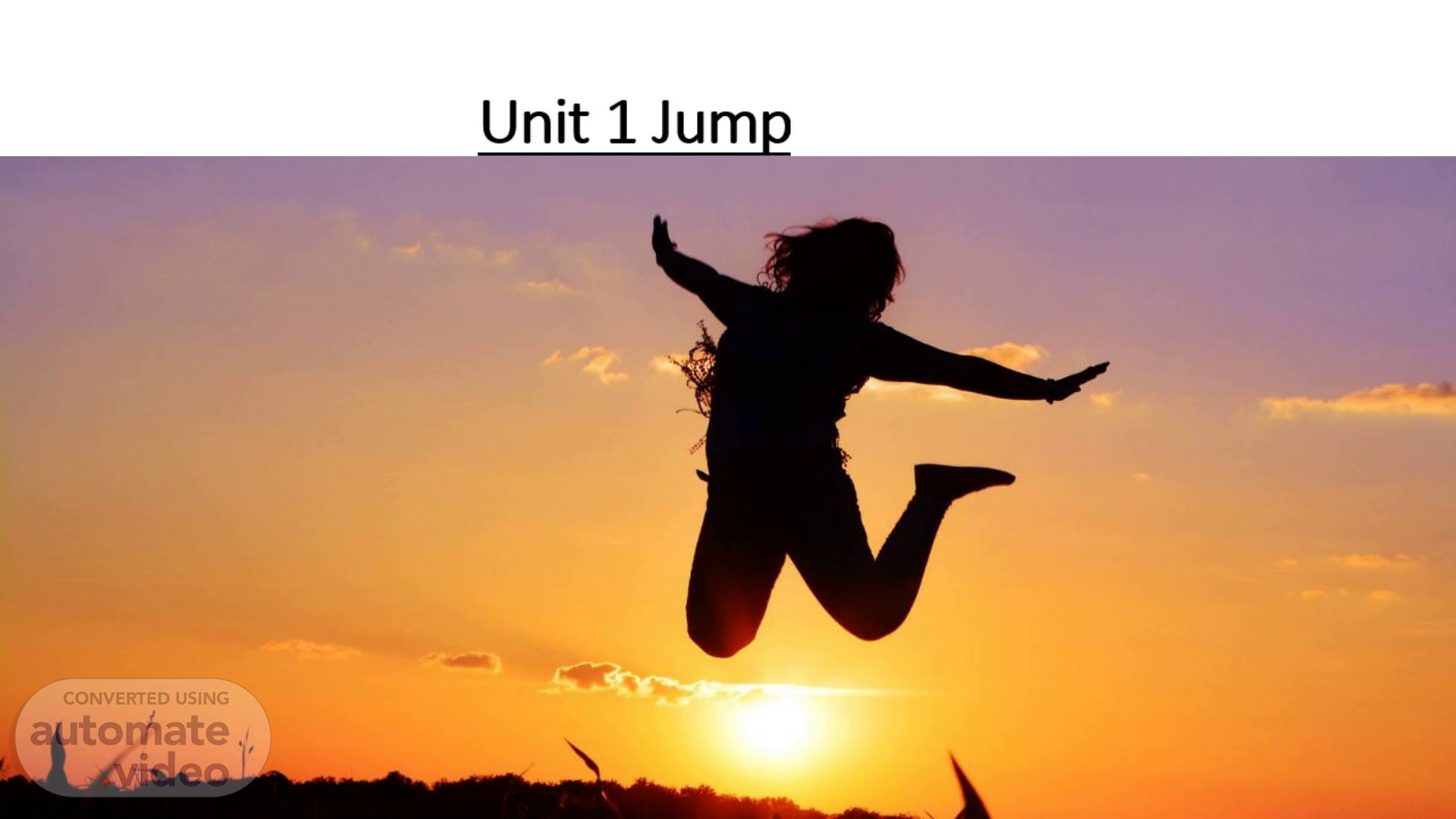Scene 1 (0s)
Unit 1 Jump for Joy.
Scene 2 (6s)
1- Upset (v). Make sb feel worried and/or angry E.g."Jason was upset after he lost his phone at the park, and he couldn’t find it anywhere.".
Scene 3 (19s)
2- Behaviour (n). -noya,vp€. the way that sb acts (behaviorur: v) E.g."Tom’s behavior in class changed when he started paying more attention and participating in discussions. ".
Scene 4 (31s)
3- Sight (n). Sth that you see E.g."On their hike, the boys were amazed by the sight of the beautiful sunset over the mountains.".
Scene 5 (43s)
4- Wonder (v). ask yourself; want to know E.g."Lucas couldn’t help but wonder what it would be like to travel to space one day.".
Scene 6 (55s)
5- Bother (v). To make sb angry or upset or worried E.g."Max kept poking Liam in the arm, which started to really bother him until he finally asked Max to stop.".
Scene 7 (1m 8s)
6- Context (n). Onie context rte.. He situation in which sth happens and which can explain it (contextualise: v) E.g."To fully understand the story, you need to know the historical context in which it was written.".
Scene 8 (1m 22s)
7- Supply (n). 05 c, SHOP. An amount of sth that is available and people can use (supply: v) E.g."The teacher made sure to supply the students with all the materials they needed for the science experiment.".
Scene 9 (1m 37s)
8- Public transport (n). The system of buses, trains, etc. that can be used by the public in a specific place E.g."Jessica prefers to use public transport to get to school because it's cheaper and helps reduce traffic.".
Scene 10 (1m 52s)
9- Interruption (n). The act of stopping sth for a short period of time (interrupt: v) E.g."During the important meeting, Sarah’s phone rang, causing a brief interruption in the discussion.".
Scene 11 (2m 5s)
10- Bug (v). Annoy, irritate (bug: n) E.g."Tim started to bug his brother by constantly asking him when they could leave for the movie.".
Scene 12 (2m 16s)
11- Decade (n). years. A period of ten years E.g."Over the past decade, technology has advanced so quickly that it's hard to keep up with all the changes.".
Scene 13 (2m 29s)
12- Research (n). Research. The study of sth in order to discover new information (research (v), researcher (n) E.g."Before starting his project, Daniel spent hours doing research to find reliable sources for his paper.".
Scene 14 (2m 43s)
13- Condition (n). A disease or medical problem E.g."The car was in excellent condition after the mechanic gave it a thorough check-up.".
Scene 15 (2m 54s)
14- Respond (v). th@companyinc Introduction - John Doe Dear Mr. Smith. My name Jessica Hester. md I am a recent graduate with a degree in graphic design. We talked br•ny at the conference last wæk and you askedme to main my g)rtf01i0, fm considering a carer in Graphic Design and would love to buy you coffee so I can learn more about frcrn an expert Lers meet for coffee sometime Soon. Thank you so much for time Jessica Hester (555)555-1234 Emmithswebsite.com Micros u A •.
Scene 16 (3m 23s)
15- Yawn (v). Open your mouth wide and take in a lot of air, when you are tired or sleepy E.g."After staying up late to finish his homework, Ethan couldn’t help but yawn during first period the next day.".
Scene 17 (3m 37s)
16- Chew (v). Bite food into small pieces with your teeth so that you can eat it E.g."Jake had to chew his food slowly so he wouldn't choke on the large bite he took.".
Scene 18 (3m 51s)
17- Suffer (v). Experience pain (suffering: n) E.g."During the winter, Mark would often suffer from a cold because he forgot to bundle up before going outside.".
Scene 19 (4m 3s)
18- Benefit (n). Benefit men];. A good effect of sth (benefit: v, beneficial: (adj) E.g."Exercising regularly can have a great benefit on your health, making you feel more energetic and focused.".
Scene 20 (4m 17s)
19- Prevent (v). Prevent. Stop sb from doing sth or stop sth from happening (prevention: n) E.g."To prevent the cake from burning, Sarah kept a close eye on the oven while it baked.".
Scene 21 (4m 30s)
20- Packed(adj). SUY•MAID Raisins. Completely full (Syn: crowded) E.g."The picnic basket was packed with sandwiches, fruit, and cookies, ready for a perfect afternoon in the park.".
Scene 22 (4m 43s)
21- Delayed(adj). Happening later than expected (Opp: punctual, on time) E.g."Emily was disappointed when her flight was delayed, but she tried to pass the time by reading a book in the waiting area.".
Scene 23 (4m 57s)
22- Tolerable(adj). Just satisfactory; not too good, not bad (tolerate: v, tolerance: n, Opp. intolerable) E.g."The dog’s barking was loud, but after a while, it became tolerable because they knew he was just excited to see them.".
